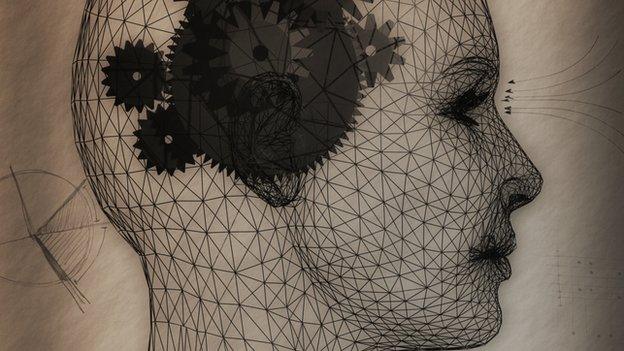Podcast 'patent troll' faces blow after US ruling
- Published

The patent describes a way to update websites with details of new audio and video podcasts
A company that claimed fees from podcasters who publish audio and video on their own websites has suffered a patent-ruling defeat.
The decision could potentially prevent Personal Audio LLC legally requiring media groups to pay it if they update their sites to show new episodes.
The Texas-based company had previously targeted US firms including CBS, NBC and Fox.
But its efforts were challenged by a digital rights campaign group.
The Electronic Frontier Foundation had petitioned for a review of the patent in question, external after raising more than $76,000 from the public via a crowd-funding campaign to cover its legal costs.
It said that Personal Audio should never have been given ownership rights to a way to create an updateable electronic table of contents.
The US Patent Office has now invalidated critical parts, external of related intellectual property rights it had previously granted to Personal Audio in 2012.
"[The decision] significantly curtails the ability of a patent troll to threaten podcasters big and small," the EFF said in a statement, external.
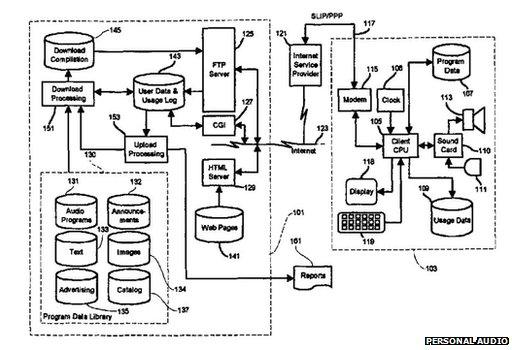
The patented technique was described in this drawing
"But unfortunately, our work to protect podcasting is not done. Personal Audio continues to seek patents relating to podcasting. We will continue to fight."
The term "troll" is a derogatory term used to refer to patent-library owners who actively pursue others for payments without making products of their own.
Personal Audio has the right to appeal against the ruling and still lists its patent for "episodic content" on its website, external.
It could not be reached for comment.
'Small players'
The invention at the heart of the dispute relates to a process by which a website is updated to provide access to new video and audio podcasts as they become available.
Personal Audio's founder James Logan first applied for the rights to the idea in 1996 at a time his company was trying to create a digital audio player, a product it ultimately failed to bring to market.
"I invested $1.6m [£1.1m], and lost it all. Personal Audio LLC, the patent holding company, is the attempt by the investor, me, to get a return on that investment," Mr Logan told the Slashdot news site in 2013, defending his company's business model, external.
"We are small players in a larger system, one set up to foster innovation by turning inventions into property. We are merely using our property as the system was designed."
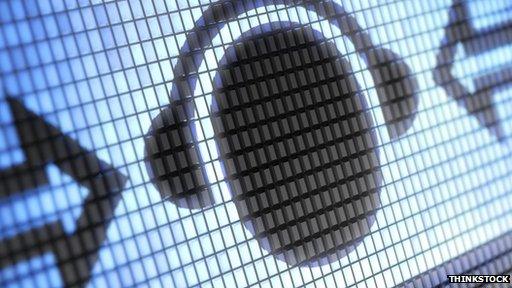
Personal Audio focused on patent fees after failing to create a digital audio player
However, the EFF successfully challenged elements of the patent on the basis of two arguments:
The suggested technique would have been "obvious" to other developers at the time, meaning it should not have been protected. The evidence given for this was that CNN had described a web-based video library of its own in 1995
The Canadian Broadcasting Corporation published a paper in 1996 detailing its trial of a system that allowed people to download radio shows from the web following their broadcast. This meant the technique had already been "anticipated" - or described in a printed publication - before the patent was filed, meaning related rights should never have been granted
Last year, a Texas jury ordered CBS to pay $1.3m in damages to Personal Audio after finding it had infringed the patent after placing TV shows on its website.
Personal Audio lists Samsung, Apple, HTC and LG among the licensees of other music and podcast-related patents that it owns.
- Published25 February 2015
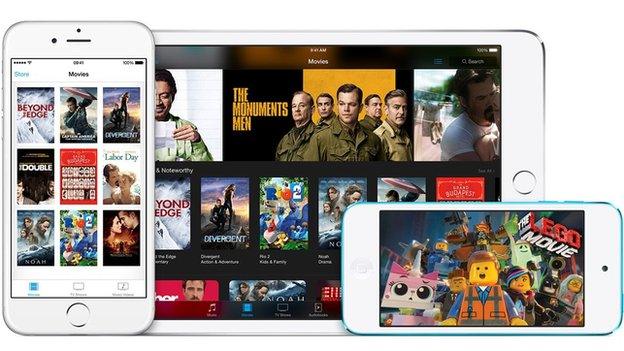
- Published10 February 2015
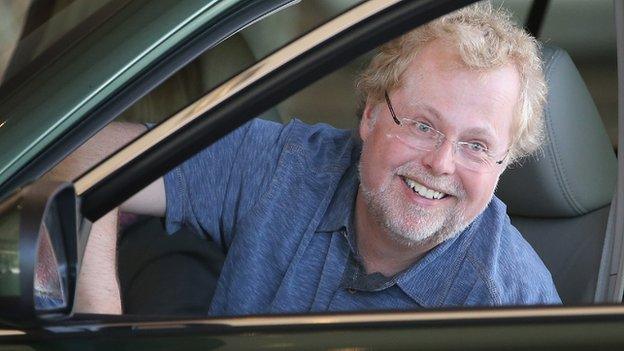
- Published20 August 2013
